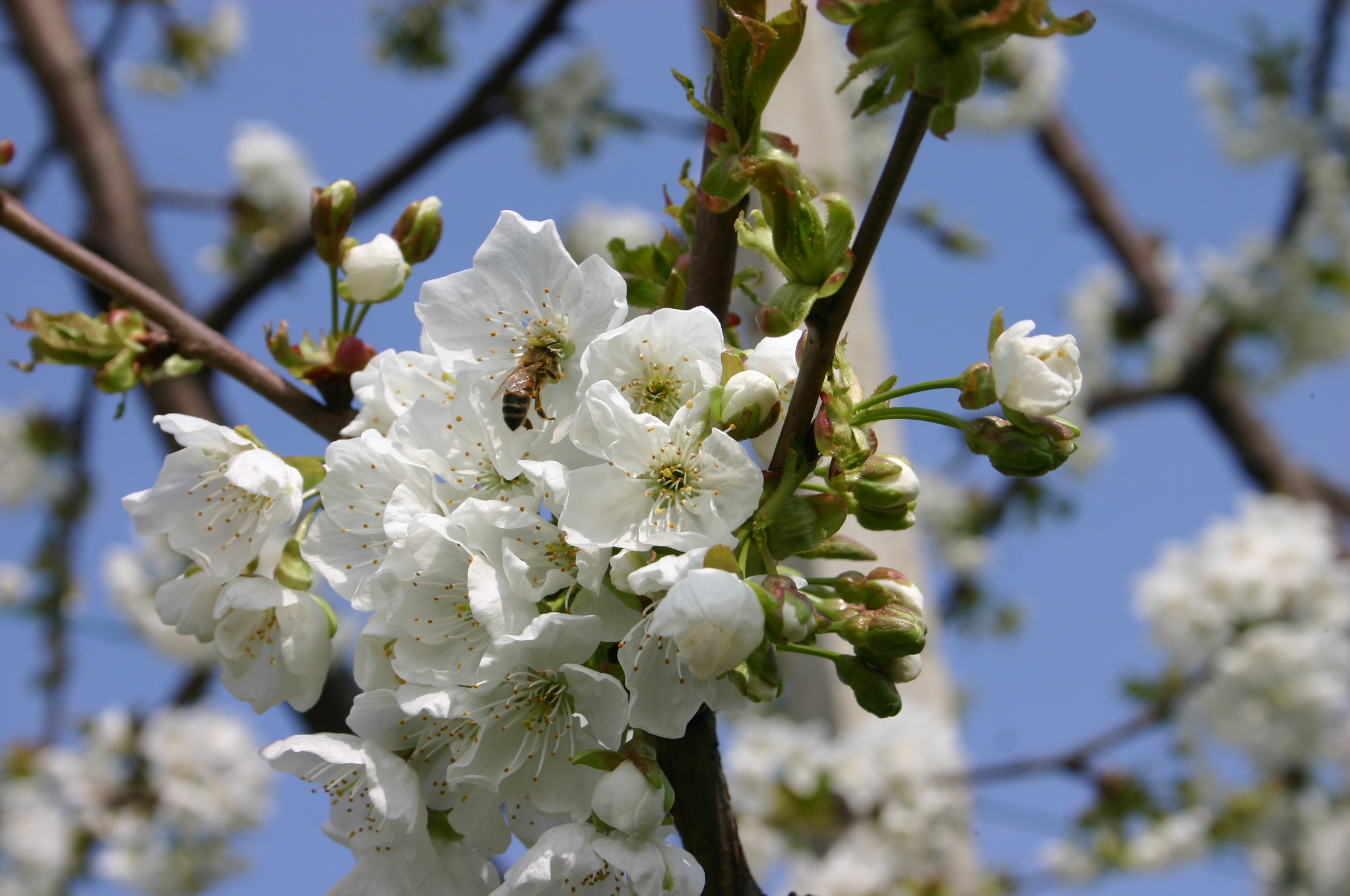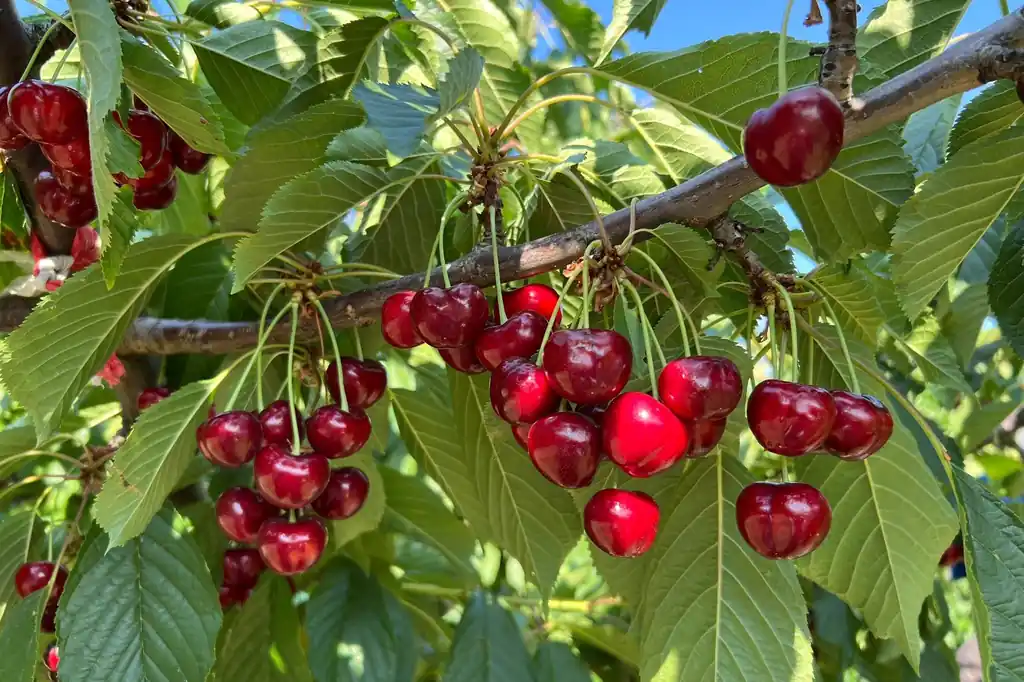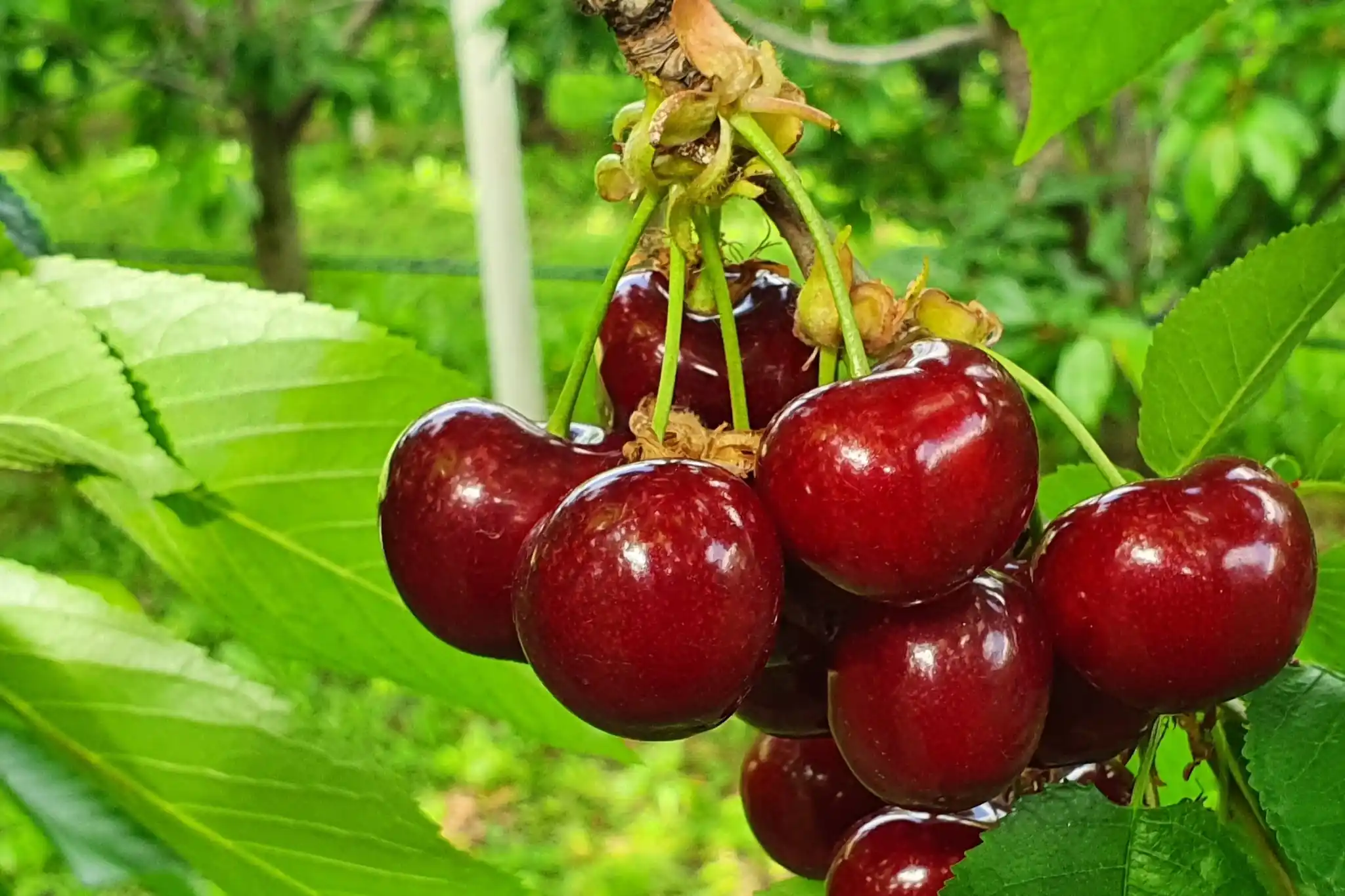Pollination is a fundamental and critical process, especially in species like sweet cherry. Insect pollinators, particularly bees, play a crucial role in this process. Recent studies conducted by researchers of UK and USA have shown that pollinators are essential not only for achieving production but also for improving cherries’ quality.
The study’s results reveal that the fruit set percentage from artificially pollinated flowers (which exclude insect pollinators) was only 1.1%, compared to 15.4% in open blossoms exposed to natural pollination. This stark difference highlights the critical role of pollinators in ensuring successful fruit set. Moreover, cherries from open blossoms exhibited superior quality attributes, including greater weight and size, compared to those from artificially pollinated flowers.
In terms of quality parameters, cherries with open pollination had higher fresh weight, size, and dry matter content compared to flowers with artificial pollination. For example, cherries fresh weight increased from an average of 9.23 grams (artificial pollination) to 11.57 grams (natural pollination), highlighting a significant improvement. Similarly, the cherries' size was greater with pollinators.
The study also examined the flesh-to-pit ratio, an important quality parameter for producers and consumers. Naturally pollinated cherries showed a higher flesh-to-pit ratio, indicating a greater amount of flesh. On the other hand, the firmness of the cherries (measured in Durofel units) remained relatively consistent regardless of the type of pollination. However, the overall improvement in weight, size, and flesh-to-pit ratio underscores the importance of pollinators in enhancing fruit quality.

The researchers recommend implementing effective pollinator management strategies within orchards to ensure these benefits are fully realized. Such strategies might include providing floral resources outside the main sweet cherry bloom period and creating suitable habitats for nesting, thereby maintaining and supporting a healthy pollinator population within the orchard.
In summary, the study reveals that insect pollinators are essential for sweet cherry production and quality. By significantly improving fruit set and key quality attributes, pollinators provide a fundamental ecosystem service that supports sustainable sweet cherry production. Therefore, orchard management practices that protect and promote the health of pollinators are crucial for maintaining high standards in sweet cherry production and quality.
Source: Mateos-Fierro, Z., Garratt, M. P., Fountain, M., Ashbrook, K., & Westbury, D. B. (2024). Contribution of Pollinators to Delivering Fruit Quality in Commercial Sweet Cherry Orchards. Available at SSRN 4845117. Pre-print, under peer-review. https://dx.doi.org/10.2139/ssrn.4845117.
Image: SL Fruit Service
Andrea Giovannini
University of Bologna (IT)
Cherry Times - All rights reserved











